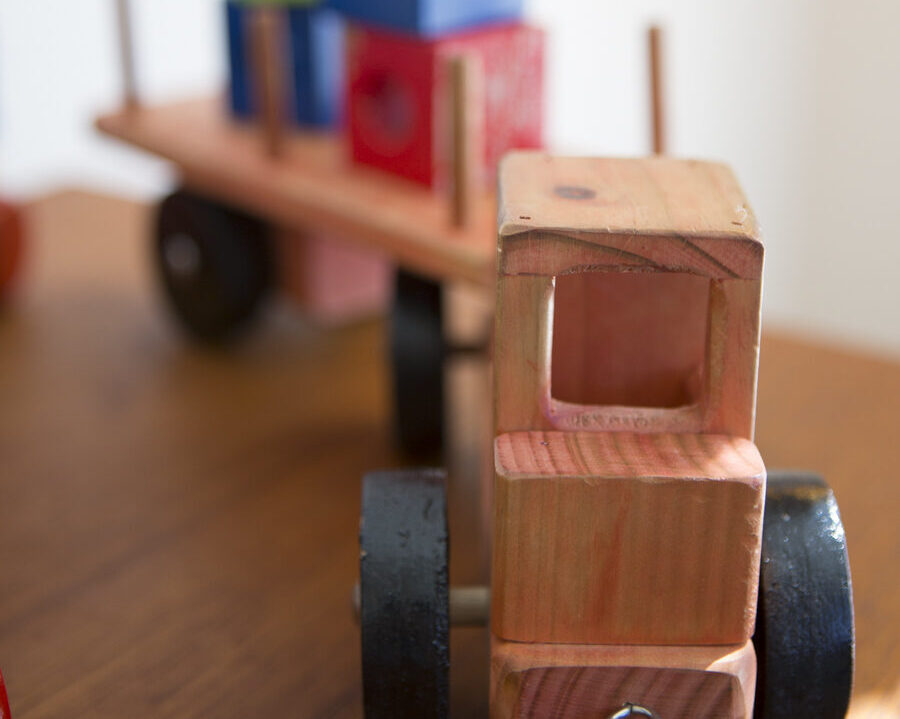
Occupational therapy, otherwise known as OT, can look very different depending on the setting. You may have heard of OTs in hand rehabilitation, helping individuals get back to work or in rehabs after a stroke. Because of the broad spectrum of work that we do, occupational therapy is often misunderstood and frequently compared to physical therapy. One saying that I learned (and I think just about every OT learns) while going through OT school is, “PTs help you get where you need to go, and OTs help you do what you need to do when you get there”. What does this mean? Well just like our title implies, we focus on a person’s occupations – helping them accomplish what they need to do to live a fulfilling life. When it comes to a child, what is their main occupation? Well play and school of course!
“Physical Therapists help you get where you need to go, and Occupational Therapists help you do what you need to do when you get there”.
Now that you have a basic understanding of what occupation therapy is, let’s dive into what we
do specifically at Play 2 Progress as well as many pediatric occupational therapists, sensory
integration. Many people have heard the word sensory and often associate it with tactile play,
but don’t truly understand the scope of our sensory system and just how important it is for a
child’s development.

First, let’s start with the definition of sensory integration. Jean Ayres, described sensory integration as “The neurological process that organizes sensation from one’s own body and from the environment and makes it possible to use the body effectively with the environment.” I also think is important to understand is that we have 8 senses, not 5. Yes, 8 senses. Our three lesser-known senses are the vestibular sense (sense of movement), proprioceptive sense (sense of where you are in space) and our interoceptive sense (internal awareness). I can say a lot about each of these senses (and even wrote a book on them) and highly encourage you to read more on these if you would like to learn more. All 8 of our senses are critical for development and it is important that all 8 are getting nourished through sensory play, which is play that engages any and all of the 8 senses (this includes movement and it does not need to be Pinterest perfect sensory boxes!). I like to describe our 8 senses as the roots to a tree. It is important that they are strong and able to effectively process the sensory input coming in from
the environment (like the instructions given by a teacher) and effectively respond (or not,– i.e., hearing a bird outside during class).
A child’s sensory system has a big impact on a child’s life. Our sensory system is important not only for both gross motor and fine motor activities (think coordination and visual motor skills like cutting), but also for emotional regulation. Our senses used in different ways can be either calming or alerting. For example, if a child is spinning and swinging super-fast on a tire swing, that is using vestibular input in an alerting way, while gently rocking baby to sleep is using it in a calming way.
Additionally, some kids have trouble effectively processing sensory input. If this is the case, they may become dysregulated which can look a bit different on every child. In this case, our goal is to help a child more effectively process the sensory information, through sensory integration therapy. At Play 2 Progress, we also empower children to understand their own sensory system and identify tools (we call them body tools) that work to help their body regulate.
Below are just a few signs of a sensory difference:
Oversensitive to sensory inputs
Under sensitive to sensory inputs
High or low activity level
Disorganized
Impulsivity or lack of self-control
Difficulty calming
Difficulty staying seated
Difficulty with bilateral coordination
Clumsy or awkward
Frequently leaning when sitting
Difficulty holdingpencils/ scissors
Delays in motor skills
Poor body awareness
Mouthing non-food objects
Difficult learning new tasks
Picky eating
If you would like to find out more, check us out at Play2Progress.com! We offer both group and individual therapy as well. Happy playing and remember to have a lot of sensory fun!
Dr. Allie Ticktin is an occupational therapist with a specialty in sensory integration, and the founder of Play 2 Progress. Allie’s life work is to empower children and families through play, and she hopes that one day quality open-ended play will be considered as important as learning the ABCs.

